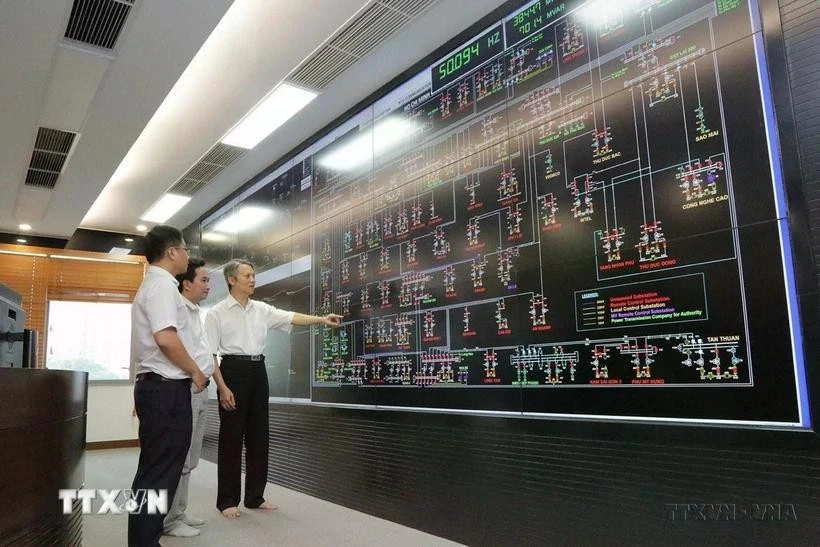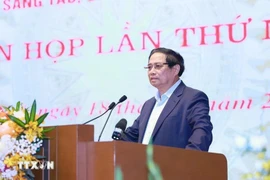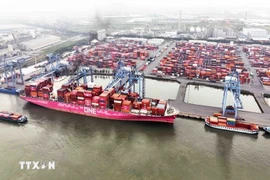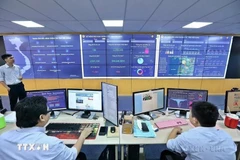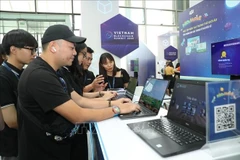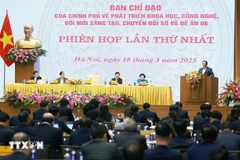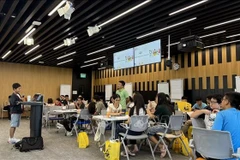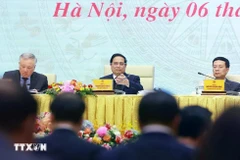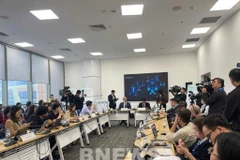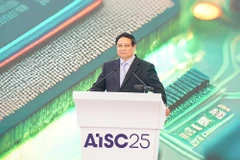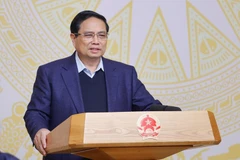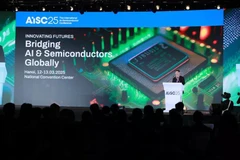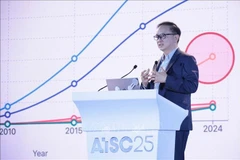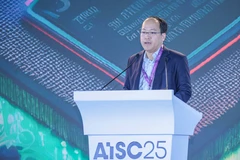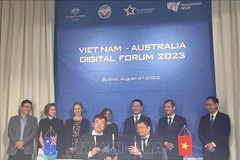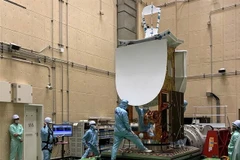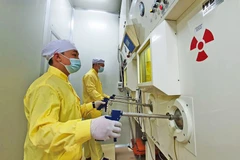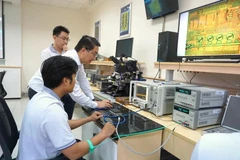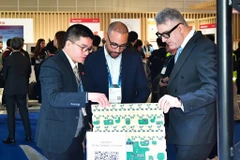Tokyo (VNA) – The objectives set for 2030 and a vision to 2045 in the Politburo’s Resolution 57-NQ/TW reflect Vietnam’s strong determination to become a leader in science, technology, innovation, and digital transformation among high-middle-income countries by 2030, contributing to making Vietnam a high-income developed country by 2045, commented Nguyen Duc Minh, Counsellor and representative for Science and Technology of Vietnam in Japan.
Minh held that the ambitious targets outlined in the resolution are based on both Vietnam’s current capabilities and its future development potential. However, achieving these goals requires breakthrough approaches to implementing science, technology, innovation, and digital transformation.
These areas will lay the groundwork for rapid development, enabling other sectors to grow in tandem. Short-term goals can be met by accelerating investment in digital infrastructure, digital industries, and research and development (R&D), alongside attracting private sector investments, especially from large corporations. Additionally, efforts should focus on advancing technology transfer tailored to Vietnam’s needs, he said.
While challenges such as institutional frameworks, infrastructure, and human resources exist, the rapidly changing global context also presents a competitive landscape. Developed and emerging nations are heavily investing in science, technology, and digital transformation, and global competition for technological supremacy is intensifying. As such, this requires Vietnam to act with even greater determination, speed, and innovation, aligning with global trends while adapting to domestic circumstances, said Minh.
He noted that Resolution 57 also outlines several key solutions to enhance collaboration among the government, scientists, and businesses, particularly in the "investment-research-commercialisation" chain. The State will play a critical role by initially funding research through flexible mechanisms, ensuring quick disbursement. For research itself, a performance-based contract approach will allow scientists to focus solely on achieving the best outcomes. Research institutions, as well as their staff, will benefit directly from the results of their work.
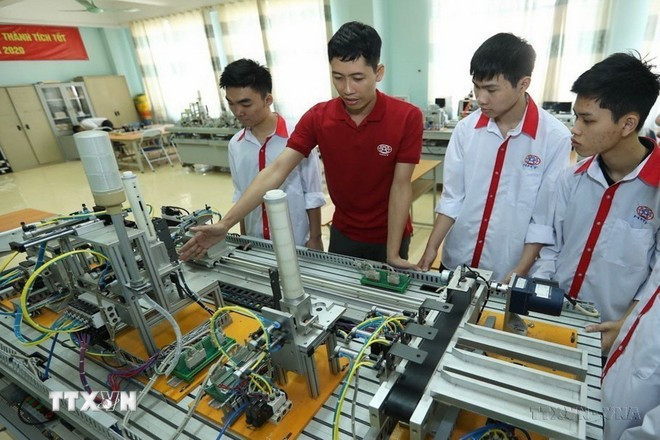
The introduction of a "sandbox" mechanism will allow businesses and researchers to experiment with new technologies or business models within a state-supervised environment, facilitating the transfer and commercialisation of advanced technologies.
Additionally, the resolution includes mechanisms for the government to commission major businesses with significant challenges, promoting creative start-ups that may evolve into future tech giants. There will also be incentives to encourage investment in R&D. These measures aim to strengthen the collaboration among the government, scientists, and businesses.
Minh also highlighted the potential contributions of Vietnamese students and intellectuals currently studying and working in Japan to Vietnam’s scientific and technological progress. The Vietnamese intellectual community abroad represents a valuable, high-skilled resource, many of whom are working directly in prestigious institutions and corporations. Their contributions through teaching, research, and technology transfer will be crucial in advancing Vietnam’s scientific, technological, and digital development.
According to Minh, there are over 600,000 Vietnamese nationals residing in Japan, many of whom are experts holding prominent positions at universities, research labs, and large corporations. The Vietnamese intellectuals in Japan can be divided into two groups - those who plan to return to Vietnam for long-term roles and those who will remain abroad but act as intermediaries for knowledge exchange.
To encourage Vietnamese students and intellectuals to contribute to the nation’s development, he proposed that the Government and the private sector should identify specific positions for overseas Vietnamese experts who wish to work in Vietnam, while offering incentives, favourable policies, and an enabling environment for research, including financial and technological support.
For those remaining abroad, Minh said that they can serve as important connectors for resources by participating in training, advising on policy, and facilitating international collaborations. Governments and businesses should implement short-term, targeted policies to strengthen international partnerships and attract new talent to support Vietnam’s science, technology, and digital transformation. Minh emphasised that while those returning directly will be immediately more impactful, the indirect group can contribute in the longer term and may eventually transition into direct roles./.
